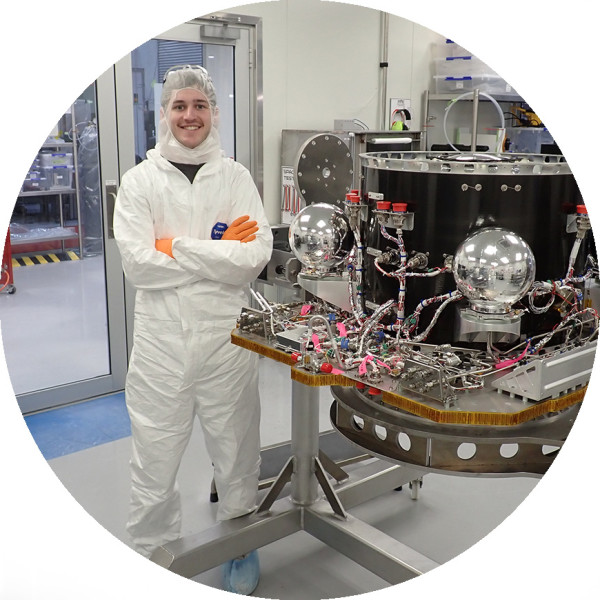For Sebastian Mataric, space wasn’t just a distant dream, it was a fascination that started early and never faded.
“Whether it was learning about what's out there or how to get there, I’ve always been drawn to space,” says Sebastian. “So once I found out there was a potential career for me at Rocket Lab, there was nothing to do but pursue it.”
That determination paid off. After landing a role at Rocket Lab, Sebastian was offered the opportunity to complete NZQA Level 4 Qualification in Aeronautical Engineering, delivered on the job through a partnership with ServiceIQ.
“This is the best way to learn,” says Sebastian. “Having hands-on experience while completing my qualification meant that everything I learnt on paper was reinforced every time I worked on a component or system. The skills and knowledge I gained have followed me through every aspect of my job.”
Based in New Zealand, Rocket Lab is one of the world’s leading space companies, and the first private organisation in the Southern Hemisphere to reach space. It designs, builds, and launches the Electron rocket which is one of the most frequently launched rockets globally.
But behind the science fiction headlines is a very real need for skilled technicians.
“We need more than just rocket scientists at Rocket Lab,” says Dave Hill, Leading Hand, Mechanical Production.
“Skilled technicians are essential to our success and experience in high-precision assembly is best developed through on-the-job exposure.”
Rocket Lab’s partnership with ServiceIQ led to the launch of New Zealand’s first Aerospace Apprenticeship. It’s a structured, workplace-based training programme designed to grow the next generation of aerospace talent right here in Aotearoa.
“Together with ServiceIQ, we’ve developed a qualification that’s directly relevant to our operations,” Dave explains. “Apprentices learn from our specialists and engineers, building and assembling our rockets to the highest standards.”

Photo: Sebastian Mataric, Senior Space Systems Technician I at Rocket Lab
The apprenticeship has also allowed Rocket Lab to recognise the experience of early team members who came from aviation, defence, or mechanical trades, cross qualifying their industry experience into formal credentials.
Beyond supporting individual learners, the training model has real business benefits. It helps Rocket Lab maintain high standards, develop a sustainable talent pipeline, and bring new technicians up to speed more efficiently.
“Having a standardised qualification means we can bring in people without prior aerospace experience and train them to the level we need,” says Dave. “It’s improved workmanship, boosted our production efficiency, and created well-rounded team members who contribute across departments.”
For Sebastian, the journey has been more than technical, it’s been transformative.
“It’s been a dream come true to work in this industry,” he says. “Knowing that what I work on could be contributing to a better future is a satisfaction I’d never experienced before. I go home every day having learnt something new.”